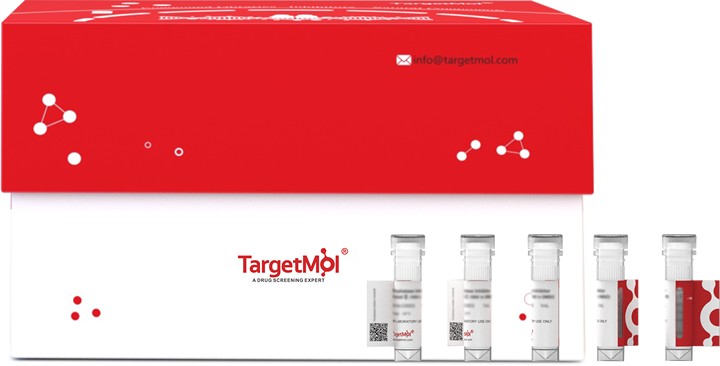Shopping Cart
Remove All Your shopping cart is currently empty
Your shopping cart is currently empty
GITR Ligand/TNFSF18 Protein, Mouse, Recombinant is expressed in E. coli. The accession number is Q7TS55.

| Pack Size | Price | USA Warehouse | Global Warehouse | Quantity |
|---|---|---|---|---|
| 5 μg | $85 | 7-10 days | 7-10 days | |
| 10 μg | $138 | 7-10 days | 7-10 days | |
| 20 μg | $238 | 7-10 days | 7-10 days | |
| 50 μg | $497 | 7-10 days | 7-10 days | |
| 100 μg | $833 | 7-10 days | 7-10 days | |
| 200 μg | $1,380 | 7-10 days | 7-10 days | |
| 500 μg | $2,790 | 7-10 days | 7-10 days | |
| 1 mg | $4,750 | 7-10 days | 7-10 days |
| Biological Activity | ED 50 < 5.0 ng/ml, measured by the amount of Interleukin-8 produced by PMBC, corresponding to a specific activity of > 2.0 × 10 5 units/mg. |
| Description | GITR Ligand/TNFSF18 Protein, Mouse, Recombinant is expressed in E. coli. The accession number is Q7TS55. |
| Species | Mouse |
| Expression System | E. coli |
| Tag | Tag Free |
| Accession Number | Q7TS55 |
| Synonyms | TNFSF18,TL-6,GITRL,Activation-induced TNFR member Ligand |
| Construction | Thr47-Ser173 |
| Protein Purity | > 95% as determined by SDS-PAGE; > 95% as determined by HPLC |
| Molecular Weight | ~14.5 kDa (Reducing conditions) |
| Endotoxin | < 0.2 EU/μg of protein as determined by the LAL method. |
| Formulation | Lyophilized from a 0.2 μm filtered solution in PBS. |
| Reconstitution | Reconstitute the lyophilized protein in sterile deionized water. The product concentration should not be less than 100 μg/ml. Before opening, centrifuge the tube to collect powder at the bottom. After adding the reconstitution buffer, avoid vortexing or pipetting for mixing. |
| Stability & Storage | Upon receiving, this product remains stable for up to 6 months at lower than -70°C. Upon reconstitution, the product should be stable for up to 1 week at 4°C or up to 3 months at -20°C. For long term storage it is recommended that a carrier protein (example 0.1% BSA) be added. Avoid repeated freeze-thaw cycles. |
| Shipping | In general, Lyophilized powders are shipping with blue ice. Solutions are shipping with dry ice. |
| Research Background | Activation-Inducible TNF-Related Ligand (AITRL), also known as Glucocorticoid-Induced TNF-Related Ligand (GITRL), belongs to the tumor necrosis factor superfamily (TNFSF). AITRL is a Type II single transmembrane protein and shares low conservation within the extracellular domain with other TNFSF members. AITRL is expressed on macrophages, immature and mature dendritic cells and B cells. Its receptor, Activation-Inducible TNFR family Receptor (AITR), is expressed on T lymphocytes, natural killer (NK) cells, and antigen- presenting cells. After binding by AITRL, AITR can be released. AITR activation increases resistance to tumors and viral infections and is involved in autoimmune and inflammatory processes. In addition, activated AITR increases TCR-induced T cell proliferation and cytokine production and rescues T cells and NK cells from apoptosis. |
| Size | Quantity | Unit Price | Amount | Operation |
|---|

Copyright © 2015-2026 TargetMol Chemicals Inc. All Rights Reserved.